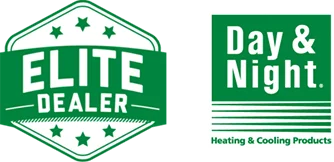Heat pumps are essential for maintaining comfortable temperatures in commercial buildings. They provide efficient heating and cooling by transferring heat rather than generating it. However, like any complex system, they require regular maintenance to operate at their best. Without proper care, heat pumps can become inefficient, leading to higher energy costs and potential breakdowns.
Understanding Heat Pumps in Commercial Buildings
Heat pumps function by transferring heat between the inside and outside of a building. Unlike traditional heating and cooling systems that generate heat or cold air, heat pumps move heat to provide balanced temperatures. This makes them an efficient choice for commercial buildings that require year-round climate control.
There are different types of heat pumps, including air-source, water-source, and ground-source heat pumps, each suited for different environments and needs. Air-source heat pumps are the most common, utilizing outside air to transfer heat. Ground-source heat pumps, also known as geothermal heat pumps, use the stable temperatures of the earth to provide heating and cooling. Water-source heat pumps operate by exchanging heat with a nearby water source.
Understanding these systems is crucial for building managers and owners. Knowing how they operate helps identify the right system for your needs and maintain it for optimal performance. Proper installation by our professionals ensures that these systems work efficiently and last longer, reducing the need for frequent repairs or replacements.
Essential Maintenance Tasks for Optimal Performance
Maintaining heat pumps in commercial buildings involves several critical tasks. Regular attention to these tasks ensures that the heat pumps operate efficiently and remain reliable.
1. Inspecting and Replacing HVAC Filters: Dirty filters can restrict airflow and reduce the efficiency of the heat pump. It is essential to check and replace HVAC filters regularly to maintain optimal performance.
2. Checking for Refrigerant Leaks: A heat pump with low refrigerant levels cannot function properly. Regular inspections help identify and fix leaks early, ensuring the system runs smoothly.
3. Cleaning Coils: Dirty coils can impede the heat transfer process. Regular cleaning of the evaporator and condenser coils is crucial for maintaining efficiency.
4. Inspecting Electrical Components: Faulty electrical components can cause system failures. Our technicians perform thorough inspections of all electrical parts to ensure they are in good working condition.
5. Lubricating Moving Parts: Proper lubrication of motors, bearings, and other moving parts reduces wear and prevents breakdowns.
6. Verifying Thermostat Settings: Incorrect settings can lead to inefficient operation. Regular calibration and setting verification ensure the heat pump runs as intended.
Common Issues and How Our Professionals Handle Them
Heat pumps in commercial buildings can face several common issues. Addressing these problems promptly is essential to maintaining a comfortable environment for everyone.
1. Refrigerant Leaks: One of the most frequent issues is refrigerant leaks. Low refrigerant levels can hinder the heat pump’s efficiency. Our professionals will inspect and repair these leaks promptly, ensuring the system operates correctly.
2. Electrical Failures: Electrical components can fail over time due to wear and tear. This can lead to the heat pump not turning on or off as expected. Our technicians will check all electrical parts and replace any faulty components to restore normal function.
3. Frozen Coils: Frozen coils can occur if airflow is restricted or if there are refrigerant issues. Our team will thaw the coils, clean the filters, and inspect the refrigerant levels to resolve the problem.
4. Noisy Operation: Unusual noises often indicate mechanical issues. Loose parts or failing components can cause these sounds. Our professionals will identify the source of the noise and perform the necessary repairs to eliminate it.
5. Inconsistent Temperatures: If a heat pump delivers inconsistent temperatures, it may be due to thermostat issues or blocked filters. Our technicians will calibrate the thermostat and ensure all filters are clean and unobstructed.
Benefits of Regular Maintenance and Timely Repairs
Regular maintenance and timely repairs offer numerous benefits for commercial building owners. Understanding these advantages highlights the importance of committing to a maintenance schedule.
- Increased Efficiency: Proper maintenance ensures that heat pumps run at peak efficiency. This reduces energy consumption, leading to cost savings on utility bills.
- Extended Lifespan: Regular inspections and timely repairs prevent minor issues from escalating, prolonging the life of the heat pump. This maximizes your investment and reduces the need for early replacements.
- Improved Air Quality: Clean HVAC filters and coils contribute to better indoor air quality. This is especially important in commercial settings where many people rely on a comfortable, healthy environment.
- Reduced Downtime: Proactive maintenance reduces the likelihood of unexpected breakdowns. This ensures continuous operation and prevents disruptions that can affect business activities.
- Enhanced Comfort: Well-maintained heat pumps provide consistent temperatures, ensuring a comfortable environment for employees and clients.
Conclusion
Maintaining heat pumps in commercial buildings is crucial for efficient operation and a comfortable environment. From understanding how heat pumps work to performing essential maintenance tasks, each aspect contributes to optimal performance. Addressing common issues promptly prevents disruptions and extends the life of the heat pump system.
If you’re ready to ensure the optimal performance of your heat pumps, trust the experts at Norris Air. Our team is dedicated to providing top-notch heat pump maintenance in Tempe to keep your commercial building comfortable year-round. Contact us today to schedule your maintenance check-up and experience the peace of mind that comes with professional care!








